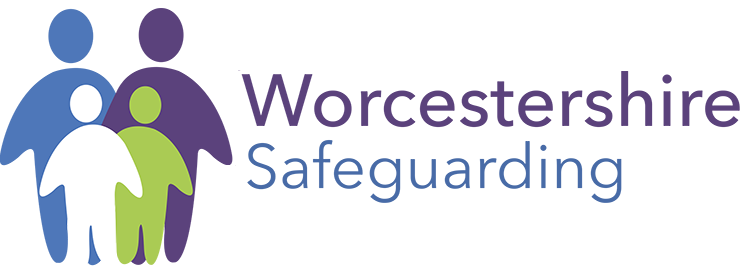WSCP
Reporting Abuse of Children
WSAB
Reporting Abuse of Adults
Making a Safeguarding Referral for Children
The Family Front Door, Initial Contact and Referral Team is the central point for all referrals for children and young people aged 0 to 18 years and living in Worcestershire where there is safeguarding or child protection concerns for them.
This team receives referrals from professionals, members of the community, family members, children and young people directly. Please contact the Family Front Door directly telephone 01905 822666. Children’s Social Care respond to levels of need identified at level 4 of the Worcestershire LSCB levels of need guidance.
Please refer to the Worcestershire LSCB levels of need guidance for support in identifying the levels of need a child or young person has and the right referral pathway for that child or young person.
If you have a child protection concern outside of normal office hours please contact our out of hours emergency duty team (EDT) telephone 01905 768020
Understanding the Levels of Need for Early Help
As of 15th March 2021 WCF had a new pathway for you to submit your request for services and referrals, this includes:
Targeted Family Support requests, Concern relating to persons in positions of trust (LADO) , Professional request for Information, New fostering enquiries, Concerns at level 4 need to children’s social care.
Please follow the link to make a new account. https://www.worcestershire.gov.uk/info/20641/are_you_a_professional_and_worried_about_child
To utilise the functions outlined above you will need to register for a new account that requires a 2 step authentication password sent to your registered email inbox. Every time you log in you will need your new 2 step authorisation code that will be sent to your email address each time you log in.
Links to contact LADO and Early Help
Early Help Support – Request services from early help family support | Worcestershire County Council
How do I report a concern about an adult safeguarding issue?
You might have concerns about abuse and neglect for yourself or someone you know.
- if it is an emergency dial 999
- to report a crime or potential crime to the Police you can phone the non-emergency number 101
- to report an adult safeguarding concern please call 01905 768053
- to report an adult safeguarding concern out of hours please call the Emergency Duty Team on 01905 768020
- If you would like safeguarding advice, please phone the Safeguarding Early Response and Triage Team on 01905 843189. This advice line will be available from 10am until 4pm Monday to Friday. The Team aim to respond to your query within two working days. (note this number does not accept referrals).
- professionals can complete an online form to report concerns about abuse or neglect
PLEASE NOTE – to report a concern you need to be registered with WCC. Information on how to register and guidance on online reporting for professionals can be found via this link
Guidance for registering and reporting an adult safeguarding concern
The information below tells you more about what happens when you report abuse or neglect and links to relevant policies and procedures that inform you how local services work together to protect adults at risk of abuse or neglect.
The Care Act 2014 (GOV.UK) sets out the safeguarding responsibilities of local services who must work together to safeguard adults in a way that supports them in making choices, and having control about how they want to live.
What will happen if the concerns are about me?
Your safeguarding concern will be passed to the Adult Safeguarding Team who will contact you.
They will discuss the outcomes you wish to achieve and whether you have support or need an advocate to help you explain what you want to happen. See the Independent Support section below.
We will establish with you who you want to be involved. Further information may need to be gathered and a decision will need to be made regarding whether a formal section 42 enquiry is required or whether there is other action that should be taken. A section 42 enquiry refers to that part of the Care Act 2014 which places a duty on the Council to make appropriate enquiries.
The aim of this process is to assist you to live the life you want, with support and protection if needed.
View the West Midlands Adult Safeguarding Policy and Procedures
Independent support
The local authority will arrange for an independent advocate to represent and support a person who is the subject of a Safeguarding Enquiry or a Safeguarding Adult Review, if they need help to understand and take part in the enquiry or review, and to express their views, wishes, or feelings. If an individual is felt to be lacking capacity to engage with the safeguarding process, a Mental Capacity Assessment will be completed to test out if the person has capacity or not to make their own decisions about their protection.
What will happen if the concerns are about someone else?
Further information may need to be gathered and a decision will need to be made as to whether a Local authority must make enquiries, or cause another agency to do so, whenever abuse or neglect are suspected called a section 42 enquiry ( see above).
We will need to establish whether the person you are concerned about has capacity to consent to the safeguarding process, and whether they need an advocate to support them. If you tell us you are worried about someone being abused, you may not always be told all the details of what action is taken. This is because the council has a duty to keep information about people safe.
Concerns for someone’s ability to cope at home
It maybe you are worried that someone maybe struggling at home with day to day matters. For more information and advice see concerns for someone’s ability to cope at home

